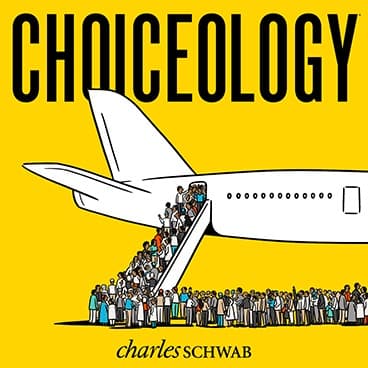An Accidental Experiment: With Guests Steven Levitt, Solomon Ezra & Stephen Spector
Scientifically sound, randomized experiments can be expensive and difficult to run. But there’s an alternative: It turns out that certain real-life situations can also generate useful scientific data. The trick is finding them.
In this episode of Choiceology with Katy Milkman, we look at how events outside of our control can create opportunities for so-called natural or accidental experiments.
The organizers of a heroic airlift transporting thousands of Ethiopian Jews to Israel broke the record for the flight with the most passengers. It was 1994, and the clock was ticking for Israeli intelligence personnel and leaders of the Ethiopian Jewish community as they worked to transport as many people as possible before the civil war closed in on Addis Ababa. This desperate effort, dubbed Operation Solomon, would change the lives of the Ethiopian Jews in surprising and unintended ways.
Stephen Spector is a professor of religions and culture and medieval English at Stony Brook University. He's also the author of Operation Solomon: The Daring Rescue of the Ethiopian Jews.
Solomon Ezra is an active member of the Ethiopian and Jewish communities in Portland, Oregon, and was a ground operations leader during Operation Solomon.
Donna Rosenthal is the author of The Israelis: Ordinary People in an Extraordinary Land.
Next, Katy speaks with Steven Levitt about how to spot natural experiments and why they can provide such unique information about human behavior.
Steven Levitt is the William B. Ogden Distinguished Service Professor of Economics at the University of Chicago, co-author of the bestselling book Freakonomics, and the host of a Freakonomics Radio podcast called People I Mostly Admire.
If you enjoy the show, please leave a rating or review on Apple Podcasts.
Learn more about behavioral finance.
Explore more topics
The comments, views, and opinions expressed in the presentation are those of the speakers and do not necessarily represent the views of Charles Schwab.
Data contained herein from third party providers is obtained from what are considered reliable source. However, its accuracy, completeness or reliability cannot be guaranteed and Charles Schwab & Co. expressly disclaims any liability, including incidental or consequential damages, arising from errors or omissions in this publication.
The policy analysis provided by the Charles Schwab & Co., Inc., does not constitute and should not be interpreted as an endorsement of any political party.
All corporate names and market data shown above are for illustrative purposes only and are not a recommendation, offer to sell, or a solicitation of an offer to buy any security. Supporting documentation for any claims or statistical information is available upon request.
Investing involves risk including loss of principal.
The book, How to Change: The Science of Getting from Where You Are to Where You Want to Be, is not affiliated with, sponsored by, or endorsed by Charles Schwab & Co., Inc. (CS&Co.). Charles Schwab & Co., Inc. (CS&Co.) has not reviewed the book and makes no representations about its content.
Apple, the Apple logo, iPad, and iPhone are trademarks of Apple Inc., registered in the U.S. and other countries. App Store is a service mark of Apple Inc.
Android is a trademark of Google LLC. Use of this trademark is subject to Google Permissions.
Spotify and the Spotify logo are registered trademarks of Spotify AB.



